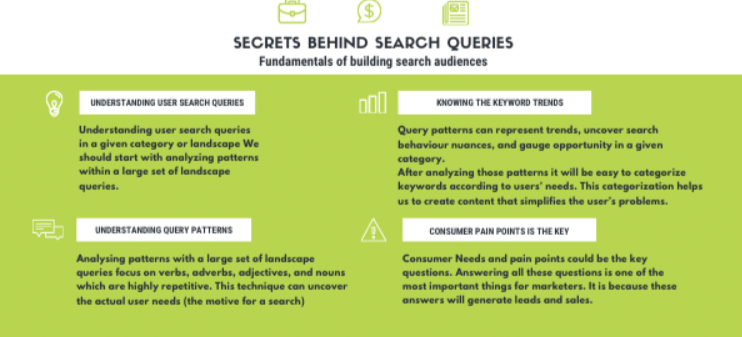Speaking of many cybersecurity firms, the hardest part is not about creating top-level protection instruments; it is communicating that value clearly to their clients.
It has a painting filled with complicated concepts, jargon, and fast-changing threats that overwhelm any non-technical buyers. And so even some of the most extended-purposeful solutions slip by-never considered or understood.
Today at the time of a digital-first world, almost 70% of B2B cybersecurity exploration takes place on the Internet before any buyer makes a call to a sales team. About 90% of these pros depend on online search engines, vendor websites, or review sites to research their options and seek validation.
This is where SEO comes in. In this fashion, a greater number of proper SEO strategy will draw the proper cybersecurity audience at the right time; first aid will help education for the prospect, credibility for yourself, and visibility to conversion as legitimate leads.
Here, we’ll explain what cybersecurity SEO is, why it matters, and some great SEO methods that can be used by your cybersecurity firm to stay ahead of the competition.
What is Cybersecurity SEO?
Cybersecurity SEO consists of an optimization process wherein potential clients can find your company with ease while searching for cybersecurity-related services on the internet. It serves as a nexus between your company and decision-makers who are actively seeking protection from digital threats — at the very moment they require it.
SEO is on hand for any kind of cybersecurity business: from cybersecurity software marketing firms to managed security services companies and consultants, it checks for an excellent source of qualified leads through organic visibility instead of paid ads.
Unlike common SEO, cybersecurity SEO would demand a more profound understanding of technical language and user intent. You’re not just marketing a product; you’re selling trust, safety, and expertise in what tends to be a field too complex for an average buyer to connect with.
Hence your SEO should aim at much more than just rankings. It should:
- Explain technicalities in buyer-friendly language.
- Provide educational content that boosts confidence instead of confusion.
- Build authority in an industry where credibility is all that matters.
- Evoke the feeling of reassurance to the buyers that the brand really does understand digital risks.
6 Effective Strategies for Cybersecurity SEO
In cybersecurity, SEO succeeds when it works in concert with how the target audience searches, evaluates, and decides things. Suspense is not about being ranked; it’s about being visible with clarity and with credibility at everything.
Builds on the assertion that these are the pillars on which a cybersecurity SEO strategy stands-and, as such, give a chance to locate gaps to fine-tune tactics, making the strategy indefinitely visible and authoritative.
1. Know Your Audience, Intent, and Their Search Patterns

A good cybersecurity SEO strategy always starts with knowing your target and understanding why they perform the search online at all-the rest-the whole set of materials might never get the views!
- Determine Your Ideal Client : Interviewing some clients, extracting data from the CRM, doing research into sales notes, and going through win/loss analyses are all operational approaches to arriving at a human description-for example, CISO, IT Manager, or Compliance Officer. With this kind of analysis with context, challenges, and pain points, you should be ready to write content that speaks directly to them.
- Match Content to Intent : Today’s visitors would first conduct cybersecurity research before buying tomorrow. Ensure that content placed for them depends on their stage: educational guides for researchers and in-depth product information or case studies for buyers.
- Search Result Analysis : Study top-ranking pages and glean topics, formats, and tones that may fare better. Look for content gaps that your site may fill with its unique value proposition.
2. Website Performance and Security Essentials

In cybersecurity, sites are typically the first touchpoint for potential customers, and first impressions count. If the site is slow, cluttered, or seems insecure, the very trust of users is lost, even before anyone gets in touch.
- Technical Setup: The website has to remain open and transparent to search engine crawlers. Page load has to be accelerated with mothership-friendly overload, and an easy path to navigate should be present. One must check for broken links, errors, or any ugliness that could hinder ranking in search engines or the user’s experience.
- Security Measures: Technical SEO apart, building an aura that assures an online operator of being safe is very critical. Obtaining an SSL certificate, conducting regular security audits, preventing from hacking attacks, or the presence of malware go long in safeguarding the website.
Fast, reliable, and secure websites stand on the pillars of authority and, in turn, build trust in the customer and enhance SEO altogether.
3. On-Page SEO and Content Clarity

Well-crafted content itself gives only half of the story; content must be organized so that search engines and AI tools are able to interpret it with ease. Each page should be explicit about user intent, yet good content keeps up with the technicality.
Page-Level Optimization: All pages should have proper titles with meta tags, header tags, internal links, and suitable images or videos with alt tags. That way, search engines will understand content and the intent of the pages.
Machine Readable Structuring Method: Structure content for AI summarization and referencing by using clear headings or having a consistent layout with semantical information organization. Such setup helps in visibility for traditional search results and also works to surface your content in AI-powered discovery.
4. Developing a Cybersecurity Content Strategy That Inspires Trust
In cybersecurity, content isn’t just there to fill pages- it is there to act as proof of expertise. Technical decision makers look for actionable insights, reliable advice, and proven instances of your company understanding theirs truly. Content of a generic nature won’t suffice.
With a strong content plan that both educates and promotes the brand as an authority, your client shall be directed to the industry consultation. That will basically be how model testing is to be effectively tackled:
- Consider a Structured Content Framework: organize your core material around audience roles, their challenges, and possible solutions. Hence, there is no need for either readers or search engines to search extensively.
- Unique Insights: Concentrate on perspectives that are original or at least proprietary, expert opinions, or even in-house research, practical tips whose availabilities are already abundant online.
- Branding Credibility: A formal concept should be established with authorship attached to it, citing valid references and relying on the practical experience of the author to promote the trustworthiness of the produced content.
- Frequent Thought Leadership Campaigns: Consistently publishing great blog articles or guides would help cement your positioning and demonstrate ongoing expertise to attract and nurture prospects.
- Conversion Oriented Assets: The atomization of materials into case studies, guide comparisons, or walkthroughs helps buyers walk through the decision process to feel confident in choosing your services.
5. Local SEO for Targeted Markets

For every region in which the cybersecurity company operates a branch, offers consulting services, or focuses spottily, there are several ways in which local search optimization can be done so as to generate quality leads, firm up collaboration activities, and cement their presence in the area.
Listings Optimizations: Your listings on Google and other directories should ideally be a hundred percent complete and accurate to foster a better chance of local searches, together with a greater possibility of credit in the eyes of potential local clients or go ahead and include the service locations, categories, contacts, and location-keywords, etc.
Region Specific Content: Landing pages or some other content ought to support specific regions. Such content could elaborate on local regulations, compliance requirements, or market-specific solutions. Localized messages are effective for attracting the attention of decision-makers in each area and, most importantly, converting regional visitors into actual clients.
6. Tracking the Impact of SEO and Correlating It With Revenue
For cybersecurity companies, SEO should be evaluated not merely by rankings or traffic but by the real contribution to the growth of a business. Conversion through leads, opportunities, and revenues should be what you focus on.
Meaningful Metrics to Measure: Forget about aggregate site visits and start focusing on things like demo requests, became-qualified leads, pipeline influenced, deal velocity, and even conversion ratios.
Use Right Tools: Tie revenue back to organic search activity using Google Analytics, Search Console, CRM, and multi-touch attribution; therefore, putting integrated SEO performance view into marketing and sales dashboards will help the entire company to understand how organic activities contribute towards the bottom line.
Effective Link Building Strategies for Cybersecurity SEO
Having a good set of backlinks is an important indication of authority for SEO in cybersecurity and also brings quality traffic to the website. Some powerful ways specifically catering to cybersecurity industry businesses are:
1. Publish Original Research and Reports
When conducting a comprehensive study about the trends, threats, or even case studies surrounding cybersecurity, write white papers and industry reports. Unique research is highly shareable and quite frequently referenced by blogs, news sites, and industry publications, thereby earning good backlinks for your site, all on its own.
2. Guest Blogging on Reputable Tech Sites
Write expert articles on cyber-security, technology, or business on trusted sites. Your guest post will give your brand exposure as a thought leader in your field, while also providing backlinks from authoritative sites.
3. Webinar and Podcast Participation
Taking the virtual stage or entering a virtual discussion, the speaker in any webinar or virtual venture, or podcast, would be ideal. Usually, the event site, or even podcast-channels sites link back to your website through biographies, show notes, or resources; these are high-quality backlinks with lots of authority.
4. Employ Digital PR
Make something newsworthy to write or talk on, like launches, security alerts, partnerships, or findings. These sorts of digital PR initiatives have the prospective ability to get coverage in the media, blogs, and industry portals-the revered authoritative backlinks.
5. Work with Influencers and Analysts
A collaboration with cybersecurity influencers, analysts, or consultants that includes co-creating content or even allowance to be featured in their own papers would provide high-quality links and credibility share.
Conclusion
With cybersecurity SEO living in the now digital whirlpool designed to change at a moment’s notice, servicing brand visibility is now more than just about getting ranked higher in Google: it is about trust, authority right, and touching the correct audiences. Everything in the strategy: from value-designed content, gaining backlinks, to technical task performance optimization, thereby serves to enhance their visibility and credibility.
Because the cybersecurity buyers are wary and research-oriented, the SEO strategy must consist of technical accuracy and real subject matter expertise. Concentrate on clarity, trust signals, and educational value. In addition, use data-backed insights and measure user engagement to optimize on a consistent basis for maintaining presence in search results.
At the end of the day, the cybersecurity SEO strategy converts its visibility into real business success, in such a way that the company is not merely alienating decision-makers-but has accepted full brand status that decision-makers trust for digital protection and insights.
Frequently Asked Questions (FAQs)
What is SEO in Cyber Security?
Those SEO techniques that help cybersecurity companies in getting listed higher in Google are cybersecurity SEO. It includes creating website content, keywords, and backlinks such that potential clients can easily find your services when they are searching online for security solution providers.
How long does it take before one could notice results in a cybersecurity SEO strategy?
SEO is very big-time game : For cybersecurity sites, it takes time from 3 to 6 months for changes to show in terms of new business because of competition, domain authority, and so forth.
What are the best keywords for cybersecurity SEO?
Get target keywords that are a bit of everything from generic to niche terms like “cybersecurity consulting services,” “MDR solutions,” “cloud data protection,” and “endpoint security for businesses” to encourage both generic and qualified leads.
Does AI-generated content help or hurt cybersecurity SEO?
AI can assist in content creation; however, too much reliance can cause a great detriment to its credibility. It is hence always advisable for it to be reviewed by a human, to verify its accuracy, and to ensure the presence of a strong brand voice so that trust and E-E-A-T standards can be maintained.
How can cybersecurity companies get voice search optimization?
Use conversational keywords and other question-based content like `What is a zero-trust network?` or `How can I protect my company from phishing?` to align with natural voice queries.
Is video content good for SEO in cybersecurity?
Yes, Explainer videos, webinars, and tutorials directly increase engagement and dwell time. Another point towards on-page optimization would be the embedding of videos accompanied by transcripts.
How important is it for cybersecurity sites to be mobile optimized?
Absolutely, Decision makers usually search vendors on their mobile. Unlike a slow site, quick and responsive user experience helps the pages to gain ranking in Mobile search results.
Can social media affect cybersecurity SEO ranking?
This creates an indirect effect. Social signals may not be (directly) ranking factors, but they help in social sharing, thus improving visibility, driving traffic, and finally gaining some great organic backlinking from respected sites.
